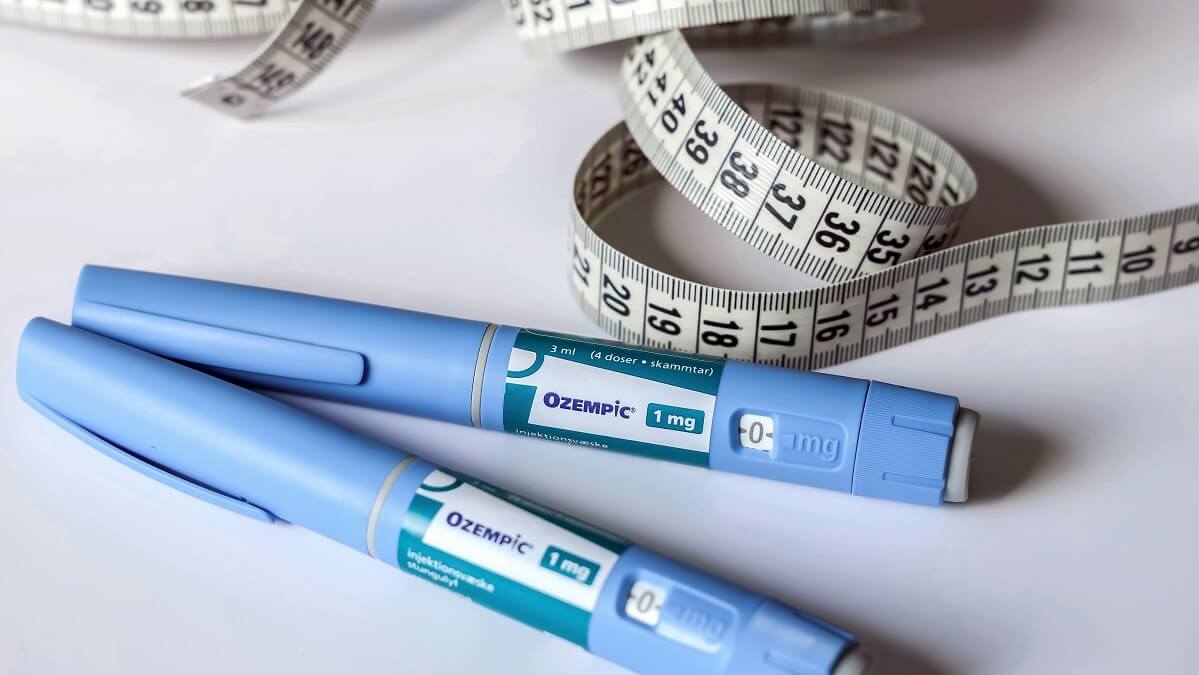Obesity is usually classified as a preventable lifestyle disease that can be ‘cured’ through willpower and self-restraint. But there’s been a significant shift in perception, driven primarily by new weight-loss drugs such as Ozempic.
The widespread success of Ozempic and drugs like it have revealed just how important a person’s internal chemistry is in determining weight. Research shows your brain acts as your body’s internal chemist, doling out chemicals as needed to regulate functions such as appetite.
Your brain determines how much fat it wants you to carry, and if that number is higher than you’d like it – well, too bad, you’ll feel hungry until you consume enough fat to satisfy your brain.
But Ozempic, its sister drug Wegovy and another weight-loss drug known as Mounjaro work to lower this fat setting in the brain and make a person feel full sooner.
This lower fat storage point remains as long as a person takes the drug.
Endocrinologist Professor Christopher Nolan told the Australian Financial Review the success of these drugs shows just how important your internal chemistry is when it comes to losing weight and keeping it off.
“Ozempic has been phenomenal for patients with diabetes and obesity,” he said.
“For some of the patients I look after … it has been the one and only medication that’s ever worked for them to give a substantial effect.”
The success of the drug shows that what many people had been saying all along was correct – that they physically couldn’t lose the weight no matter how hard they tried.
The brain sends hunger signals when a person needs fuel to reach or maintain their fat storage point, and signals a sense of fullness when they reach or exceed it.
It’s the reason people who lose weight after an illness are often ravenous once they recover, or why people feel sick when they overeat.
In an obese person, however, the storage point system has gone off the rails and has jumped to a new higher point. So, it’s obesity that causes overeating, rather than the other way around.
Ozempic and Wegovy are based on a hormone known as glucagon-like peptide 1, or GLP-1, which is secreted primarily in the lining of the gut in response to eating food, and also in the brain. GLP-1 was targeted because it plays an important role in regulating blood sugar.
The medications work to lower your fat storage point by activating GLP-1 receptors in your brain related to hunger and appetite. In addition, the drugs suppress parts of the brain responsible for reward sensations and impulse control.
These combine to lower your fat storage point, which will remain lower for as long as you take the drug. Once a person stops taking Ozempic or Wegovy, the new storage point will no longer hold.
That is why its so common for people to regain weight. This research shows its not just a lack of willpower or self-restraint that causes obesity, but rather our chemical makeup is the culprit.
Have you used Ozempic or any weight-loss drugs like it? Have you had success? Let us know in the comments section below.
Also read: Eight things you should never say to someone losing weight


I am a Type 2 diabetic who has been on Ozempic (and/or Trulicity) for the better part of a year. I have now lost something approaching 13 kgs, or around 13.5% of my original bodyweight, and looking forward to a continual, if even more gradual, weight loss.
I have used ozempic lost 10kg,but because of the price $140 a month I had to stop it cost too much for anyone on disability pension
I have Type 2 Diabetes, am NOT overweight, but have to inject myself daily with Insulin because Ozempic is not available, due to all those people trying to shed the Kilos. It should be there for Diabetics first.
I am considered obese by all the quizzes, but I was not thought to be fat enough to participate in a weightloss trial, trialling 2 drugs, one Ozempic. So the doc prescribed Ozempic for me. Yes it does control appetite, by making me feel like I have continual reflux, which I do not find acceptable. I am an emotional eater, and it did not control that, I still wanted to eat the food that I normally eat, which isn’t much, anyway. I have lost no weight, as I still want to eat the normal amount of food that I do, and I have nothing good in my life to replace the pleasure of food with.